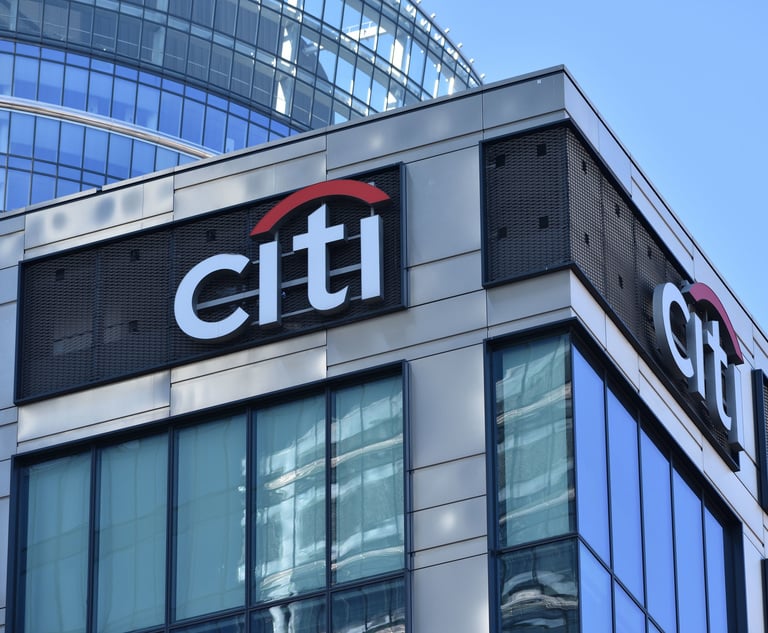Cannabis Legalization Apparently on Hold as NY Lawmakers Face Budget Deadline, Cuomo Says
Gov. Andrew Cuomo said there was not enough time to work through a variety of details that come with legalizing a drug, such as how many licenses will be provided and who will give them out.
March 31, 2020 at 06:02 PM
3 minute read
 (Photo: Matthew Staver/Bloomberg)
(Photo: Matthew Staver/Bloomberg)
Gov. Andrew Cuomo on Tuesday threw cold water on the chances of New York legalizing marijuana through the state's budget, saying an agreement on the issue was not likely.
The April 1 deadline to pass a state budget was quickly approaching for legislators as Cuomo spoke.
The third-term governor, in a radio interview Tuesday afternoon, said he does not believe an agreement over how to legalize marijuana will be reached. He said there was not enough time to work through a variety of details that come with legalizing a drug, such as how many licenses will be provided and who will give them out. The coronavirus pandemic took a lot of time that could have been devoted to policy development, Cuomo said.
"In truth, that is something that had to be talked through and worked through and the Legislature wasn't here. I was doing this COVID virus," he said.
Democrats last year also failed to pass an agreement legalizing the drug, in part over differences about where the state should funnel tax revenue from marijuana sales. Advocates and some Democratic leaders wanted commitments that marijuana revenue would go toward communities disproportionately affected by the drug's prohibition.
New York's state budget is often used to push through large-scale policy proposals, but lawmakers' focus has swiftly turned to handling the coronavirus pandemic, which is only expected to worsen.
The state has issued sweeping orders that sharply restrict gatherings and mandate that nonessential workers stay home—rules that have sparked economic havoc on certain industries.
Kassandra Frederique with the Drug Policy Alliance, an organization that backed legalization, acknowledged the coronavirus outbreak demands the full attention of state lawmakers. But the organization is still committed to legalizing the drug, she said, adding that regulation should be centered around racial and economic justice.
"We know the same communities targeted by drug enforcement are the ones with the least access to healthcare right now," she said in a statement.
This content has been archived. It is available through our partners, LexisNexis® and Bloomberg Law.
To view this content, please continue to their sites.
Not a Lexis Subscriber?
Subscribe Now
Not a Bloomberg Law Subscriber?
Subscribe Now
NOT FOR REPRINT
© 2025 ALM Global, LLC, All Rights Reserved. Request academic re-use from www.copyright.com. All other uses, submit a request to [email protected]. For more information visit Asset & Logo Licensing.
You Might Like
View All
New York-Based Skadden Team Joins White & Case Group in Mexico City for Citigroup Demerger

Bankruptcy Judge Clears Path for Recovery in High-Profile Crypto Failure
3 minute read
US Judge Dismisses Lawsuit Brought Under NYC Gender Violence Law, Ruling Claims Barred Under State Measure
Trending Stories
Who Got The Work
J. Brugh Lower of Gibbons has entered an appearance for industrial equipment supplier Devco Corporation in a pending trademark infringement lawsuit. The suit, accusing the defendant of selling knock-off Graco products, was filed Dec. 18 in New Jersey District Court by Rivkin Radler on behalf of Graco Inc. and Graco Minnesota. The case, assigned to U.S. District Judge Zahid N. Quraishi, is 3:24-cv-11294, Graco Inc. et al v. Devco Corporation.
Who Got The Work
Rebecca Maller-Stein and Kent A. Yalowitz of Arnold & Porter Kaye Scholer have entered their appearances for Hanaco Venture Capital and its executives, Lior Prosor and David Frankel, in a pending securities lawsuit. The action, filed on Dec. 24 in New York Southern District Court by Zell, Aron & Co. on behalf of Goldeneye Advisors, accuses the defendants of negligently and fraudulently managing the plaintiff's $1 million investment. The case, assigned to U.S. District Judge Vernon S. Broderick, is 1:24-cv-09918, Goldeneye Advisors, LLC v. Hanaco Venture Capital, Ltd. et al.
Who Got The Work
Attorneys from A&O Shearman has stepped in as defense counsel for Toronto-Dominion Bank and other defendants in a pending securities class action. The suit, filed Dec. 11 in New York Southern District Court by Bleichmar Fonti & Auld, accuses the defendants of concealing the bank's 'pervasive' deficiencies in regards to its compliance with the Bank Secrecy Act and the quality of its anti-money laundering controls. The case, assigned to U.S. District Judge Arun Subramanian, is 1:24-cv-09445, Gonzalez v. The Toronto-Dominion Bank et al.
Who Got The Work
Crown Castle International, a Pennsylvania company providing shared communications infrastructure, has turned to Luke D. Wolf of Gordon Rees Scully Mansukhani to fend off a pending breach-of-contract lawsuit. The court action, filed Nov. 25 in Michigan Eastern District Court by Hooper Hathaway PC on behalf of The Town Residences LLC, accuses Crown Castle of failing to transfer approximately $30,000 in utility payments from T-Mobile in breach of a roof-top lease and assignment agreement. The case, assigned to U.S. District Judge Susan K. Declercq, is 2:24-cv-13131, The Town Residences LLC v. T-Mobile US, Inc. et al.
Who Got The Work
Wilfred P. Coronato and Daniel M. Schwartz of McCarter & English have stepped in as defense counsel to Electrolux Home Products Inc. in a pending product liability lawsuit. The court action, filed Nov. 26 in New York Eastern District Court by Poulos Lopiccolo PC and Nagel Rice LLP on behalf of David Stern, alleges that the defendant's refrigerators’ drawers and shelving repeatedly break and fall apart within months after purchase. The case, assigned to U.S. District Judge Joan M. Azrack, is 2:24-cv-08204, Stern v. Electrolux Home Products, Inc.
Featured Firms
Law Offices of Gary Martin Hays & Associates, P.C.
(470) 294-1674
Law Offices of Mark E. Salomone
(857) 444-6468
Smith & Hassler
(713) 739-1250







